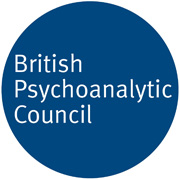What is Attachment-Informed EMDR?
“Trauma is the internal wound, not the external event.”
-Dr Gabor Mate
Attachment-informed EMDR (AI-EMDR) is a comprehensive approach to healing that addresses the complex relationship between trauma, attachment, and relational dynamics, promoting long-term resilience and well-being. It offers a holistic approach to therapy by integrating insights from attachment theory with the transformative power of EMDR, focusing on addressing attachment-related wounds by reprocessing traumatic memories within the context of the client's attachment experiences. This may involve addressing feelings of abandonment, rejection, criticism or betrayal, as well as negative beliefs about oneself and others that are often central to attachment-related traumas.
AI- EMDR is a term coined in the UK, based on the traditional EMDR model, developed by Francine Shapiro, and Attachment-Focused EMDR (AF-EMDR), developed by Dr Laurel Parnell in 2008. Parnell began incorporating attachment-repair adaptations into all phases of EMDR therapy when she started focusing on clients’ developmental stories to effectively address attachment and relational trauma and promote healing “in the context of a relationship”. Attachment or relational trauma may result from neglect, physical, sexual and/or emotional/psychological abuse by a caregiver or significant other, due to the failure to provide adequate care and to attend to a child and adolescent’s emotional needs. Additionally, being exposed to a depressed, anxious or emotionally unstable parent may also contribute the development of attachment trauma.
AI-EMDR highlights the importance of understanding clients' attachment histories, relational patterns, and attachment-related beliefs to tailor EMDR treatment to their specific needs. It emphasises the importance of empathy and safety in the therapeutic relationship to enhance clients' capacity for healthy attachment.
What happens in AI-EMDR?
When somebody experiences a very stressful or distressing event, trauma can get locked in the nervous system with the original picture, sounds, thoughts and feelings. Parts of the individual can remain stuck at the age when the trauma occurred, resulting in a tension between the adult parts and the child parts. AI-EMDR helps to address this tension and unlock the nervous system so that the mind and body can process the traumatic experience. As a result, the client can work through painful distressing memories, integrate new insights and repair the original attachment wounds, creating a better sense of self and more security in their adult relationships.
In AI-EMDR there is an emphasis on tapping in resources, which helps the brain to repair and rewire old trauma, by updating distressing trauma narratives to more balanced and safer narratives stored by the nervous system. Like traditional EMDR, AI-EMDR uses the same framework of standard EMDR therapy and involves bilateral stimulation (such as eye movements, taps, or sounds) to facilitate the reprocessing of distressing memories and promote adaptive resolution.
For a visual explanation of how EMDR can help to process early childhood traumas, watch this short video
Who can benefit from AI-EMDR?
AF- EMDR is well-suited for individuals who seek to heal from complex trauma while also addressing underlying attachment-related issues that impact their relationships, self-perception, and emotional functioning. Read my article here about what complex PTSD is.
It can help
- individuals who have experienced abuse or neglect during childhood often develop insecure attachment styles and struggle with trust, intimacy, and self-worth.
- adults with unresolved attachment issues, stemming from past relationships or experiences.
- individuals with complex trauma involving multiple traumatic events over an extended period, leading to significant disruptions in attachment patterns and relational dynamics.
- those with relational difficulties, such as difficulty forming close connections, fear of abandonment, or patterns of conflict and dysfunction.
- individuals with co-occurring mental health conditions, such as depression, anxiety, and personality disorders.
Efficacy of AF-EMDR
A clinical study, analysing the efficacy of EMDR in treating trauma in adults and children with a history of attachment trauma, found that attachment status and trauma symptoms improved just after a few sessions for both adults and children. Furthermore, participants reported improved self-esteem and were better able to regulate their emotions effectively.
It is important for individuals seeking attachment-informed EMDR therapy to work with a qualified therapist who has training and experience in either attachment-informed or attachment-focused EMDR. If you would like to have psychological support for trauma, please do get in touch here.









